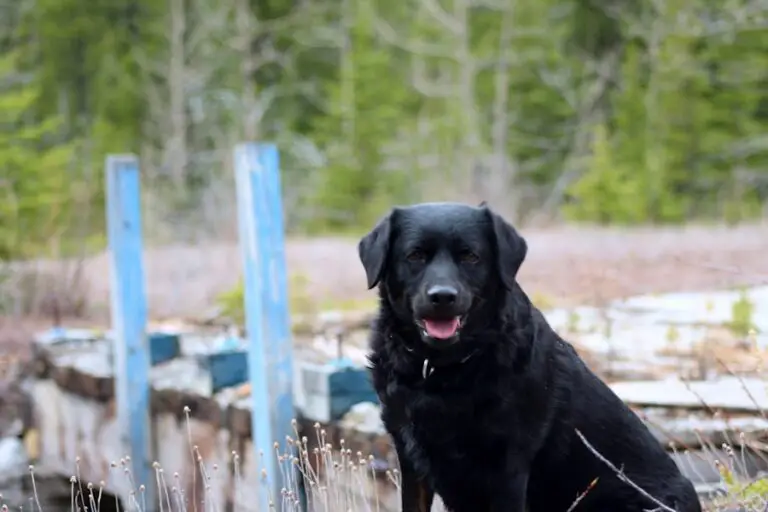From Recycling to Composting: How Germany is Tackling its Trash Problem
Germany is known for its efficient waste management system, which has helped the country achieve high recycling rates and reduce the amount of waste sent to landfills. However, managing waste in a country with a population of over 80 million people is no easy task. Germany faces the challenge of finding effective strategies to handle the large amount of waste generated by its citizens and industries.
The need for effective waste management strategies is crucial not only for environmental reasons but also for economic and social reasons. Improper waste management can lead to pollution, health hazards, and resource depletion. It can also result in increased costs for waste disposal and a loss of valuable resources that could be recycled or reused.
The Role of Recycling in Germany’s Waste Management Strategy
Recycling plays a crucial role in Germany’s waste management strategy. The country has set ambitious recycling targets and has implemented various measures to encourage recycling among its citizens. As a result, Germany has one of the highest recycling rates in the world.
Germany’s recycling rates have steadily increased over the years. In 2019, the country achieved a recycling rate of 67%, meaning that two-thirds of all waste generated was recycled. The government has set a target to increase this rate to 70% by 2020.
Recycling offers several benefits for both the environment and the economy. It helps conserve natural resources by reducing the need for raw materials extraction. It also reduces energy consumption and greenhouse gas emissions associated with the production of new materials. Additionally, recycling creates jobs and stimulates economic growth in the recycling industry.
The Success of Germany’s Bottle Deposit System
One of the most successful waste management initiatives in Germany is the bottle deposit system, known as “Pfand.” Under this system, consumers pay a small deposit when purchasing beverages in plastic or glass bottles, which they can reclaim when returning the empty bottles.
The bottle deposit system has had a significant impact on waste reduction and recycling rates in Germany. It has incentivized consumers to return their empty bottles, resulting in high collection rates. According to the German Federal Environment Agency, over 98% of all plastic bottles covered by the deposit system are returned and recycled.
The success of the bottle deposit system can be attributed to several factors. Firstly, the financial incentive provided by the deposit encourages consumers to return their bottles rather than throwing them away. Secondly, the system is easy to use, with designated collection points available in supermarkets and other retail locations. Lastly, the system has been supported by effective public education campaigns that have raised awareness about the benefits of recycling.
The Expansion of Organic Waste Collection and Composting
Organic waste management is another important aspect of Germany’s waste management strategy. Organic waste, such as food scraps and garden waste, makes up a significant portion of the country’s waste stream. Proper management of organic waste is crucial to reduce greenhouse gas emissions and promote sustainable agriculture.
Germany has made efforts to expand organic waste collection and composting. Many municipalities have implemented separate collection systems for organic waste, allowing it to be composted rather than sent to landfills. Composting is a natural process that converts organic waste into nutrient-rich soil amendment, which can be used in agriculture and gardening.
Composting offers several benefits for both agriculture and the environment. It helps improve soil fertility, water retention, and nutrient cycling in agricultural systems. It also reduces the need for synthetic fertilizers and pesticides, thereby promoting sustainable farming practices. Additionally, composting organic waste reduces methane emissions from landfills, which is a potent greenhouse gas.
The Challenges of Implementing Composting on a Large Scale
While composting is an effective method of managing organic waste, implementing it on a large scale poses several challenges. One of the main challenges is scaling up composting infrastructure to accommodate the increased volume of organic waste. This requires investment in composting facilities, equipment, and transportation systems.
Another challenge is the need for public education and awareness programs to encourage individuals and businesses to participate in organic waste collection and composting. Many people are not aware of the benefits of composting or how to properly separate organic waste from other types of waste. Public education campaigns can help address these knowledge gaps and promote behavior change.
Technology also plays a crucial role in improving composting processes. Innovations in composting technology can help optimize the composting process, reduce odor and emissions, and improve the quality of the final compost product. For example, advanced monitoring systems can provide real-time data on temperature, moisture, and oxygen levels in compost piles, allowing for better control of the composting process.
The Role of Technology in Germany’s Waste Management System
Technology plays a significant role in Germany’s waste management system. Various technologies are used throughout the waste management process, from waste collection and sorting to recycling and disposal.
One example of innovative waste management technology is automated sorting systems. These systems use advanced sensors and artificial intelligence to sort different types of waste materials, such as plastics, paper, and metals. This improves the efficiency and accuracy of the sorting process, resulting in higher recycling rates.
Another example is waste-to-energy technology, which involves converting non-recyclable waste into energy through processes such as incineration or anaerobic digestion. This helps reduce the amount of waste sent to landfills while generating renewable energy.
The potential of technology to improve waste management processes is vast. For example, advancements in robotics and automation can help streamline waste collection and sorting operations. Internet of Things (IoT) technology can enable real-time monitoring of waste containers, optimizing collection routes and reducing costs. Artificial intelligence can be used to analyze data and identify patterns that can inform waste management strategies.
The Importance of Public Education and Awareness Programs
Public education and awareness programs play a crucial role in waste management. They help educate individuals and businesses about the importance of waste reduction, recycling, and proper waste disposal practices. They also raise awareness about the environmental and economic benefits of effective waste management.
Germany has implemented successful public education and awareness campaigns to promote waste reduction and recycling. For example, the “Recycling Heroes” campaign targeted children and young people, teaching them about the importance of recycling through interactive games and educational materials. The campaign helped instill positive recycling habits at a young age.
Public education and awareness programs can have a significant impact on waste reduction and recycling rates. They can help change attitudes and behaviors towards waste management, leading to increased participation in recycling programs and improved waste sorting practices. Additionally, these programs can foster a sense of responsibility and environmental stewardship among individuals and communities.
The Collaboration between Government and Industry in Waste Management
Collaboration between government and industry is essential for effective waste management. Government policies and regulations provide the framework for waste management practices, while industry plays a crucial role in implementing these practices and developing innovative solutions.
Germany has seen successful collaborations between government and industry in waste management. For example, the introduction of the bottle deposit system was a result of collaboration between the government, beverage industry, and retailers. This collaboration ensured the successful implementation of the system and its widespread acceptance among consumers.
Collaboration between government and industry has several benefits for waste reduction and recycling. It allows for the sharing of resources, expertise, and best practices. It also fosters innovation by encouraging the development of new technologies and processes. Additionally, collaboration can help align incentives and goals between different stakeholders, leading to more effective waste management strategies.
The Future of Waste Management in Germany: Goals and Challenges
Germany has set ambitious goals for its waste management system in the future. The country aims to increase its recycling rate to 70% by 2020 and achieve a circular economy, where resources are used and reused in a closed-loop system.
However, achieving these goals poses several challenges. One challenge is the need for continuous investment in waste management infrastructure and technology. This requires funding and support from both the government and industry.
Another challenge is changing consumer behavior and attitudes towards waste management. While Germany has made significant progress in promoting recycling and waste reduction, there is still work to be done to ensure widespread participation and compliance.
New technologies and strategies offer potential solutions to these challenges. For example, advancements in recycling technology can help improve the efficiency and effectiveness of recycling processes. Digital platforms and mobile applications can provide individuals with information and tools to make informed decisions about waste management.
Lessons Learned from Germany’s Waste Management Model for Other Countries
Germany’s waste management model offers valuable lessons for other countries facing similar challenges. The country’s success in achieving high recycling rates and reducing waste sent to landfills can serve as a blueprint for effective waste management strategies.
Several countries have already adopted similar strategies based on Germany’s model. For example, Norway has implemented a bottle deposit system similar to Germany’s, which has resulted in high collection rates and increased recycling. Sweden has also implemented a successful waste-to-energy program, where non-recyclable waste is used to generate heat and electricity.
Adopting effective waste management strategies offers several benefits for other countries. It helps reduce environmental pollution, conserve natural resources, and mitigate climate change. It also creates economic opportunities by stimulating the recycling industry and promoting sustainable practices.
Effective waste management strategies are crucial for a sustainable future. Germany’s waste management model provides valuable insights into how to achieve high recycling rates, reduce waste sent to landfills, and promote sustainable practices.
Recycling plays a significant role in Germany’s waste management strategy, with the country achieving high recycling rates through various measures and targets. The bottle deposit system has been particularly successful in reducing waste and increasing recycling rates.
Germany has also made efforts to expand organic waste collection and composting, recognizing the importance of managing organic waste for agriculture and the environment. However, implementing composting on a large scale poses challenges that require investment in infrastructure, public education, and technology.
Technology plays a crucial role in Germany’s waste management system, with various innovative technologies being used throughout the waste management process. Public education and awareness programs are also essential for promoting waste reduction and recycling.
Collaboration between government and industry is crucial for effective waste management, as it allows for the sharing of resources, expertise, and best practices. Germany’s waste management goals for the future include increasing recycling rates and achieving a circular economy, but these goals require continuous investment and changes in consumer behavior.
Germany’s waste management model offers valuable lessons for other countries facing similar challenges. By adopting effective waste management strategies, countries can reduce environmental pollution, conserve natural resources, and stimulate economic growth.
Do you have questions about Germany? then contact us by using our Contact Me page. Checkout more posts by us on our Blog.







